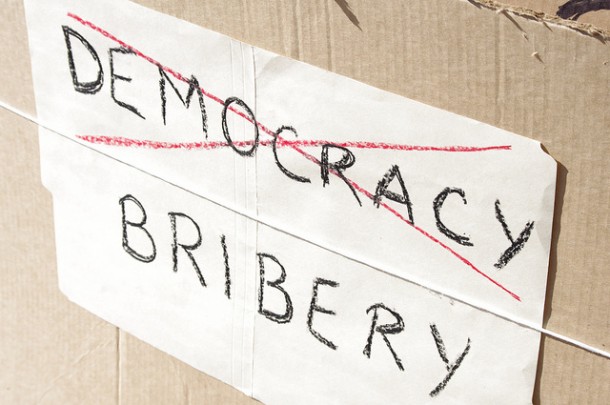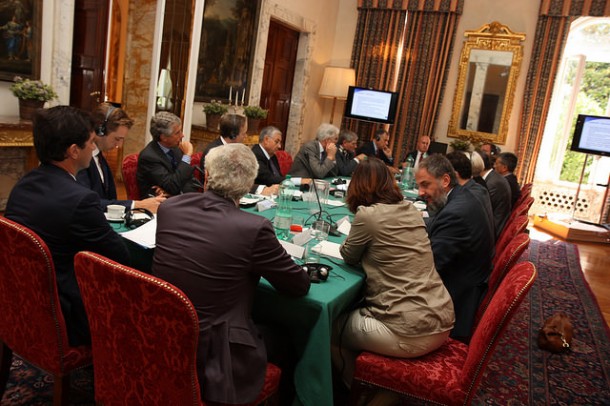Some extent of corruption and bribery is present in all societies worldwide. These are widely condemned phenomena, but sometimes become inevitable. What is the economic effect of corruption and can it ever be considered a normal part of business processes?
What is Bribery?
Bribery is defined in the U.K. Bribery Act as “giving or receiving a financial or other advantage in connection with a function that is expected to be performed impartially”. Corruption is more comprehensive, including any type of unfair advantage. Both terms don’t necessarily involve a financial payment, making the definition of such unfair advantages ambiguous. Despite this, we all have a general idea of what a corrupt act looks like.
The Ethics of Bribery
From a moral perspective, bribery “undermines democracy and the rule of law”. This erodes trust in public institutions and incentivises illegal behaviour: rewards are based on financial status rather than merit. Normal competition leading to overall improvement is destroyed in an unfair business environment. Employees and CEOs are selected based on their ability to offer bribes, not on their skills which would be of best interest to the public. This defies the principles of democracy and negatively affects business efficiency. In fact, bribery adds approximately 10% to the cost of business globally without adding to its corresponding value.
More importantly, bribery and corruption are linked to human rights violations – expenditure is diverted from projects where investment is necessary to those where bribery is involved. An example could be money intended to build an orphanage in an LDC leaking into foreign bank accounts and ultimately being used for a wealthy man’s villa. This is a great problem in some African countries: only 50% of allotted funds reached medical clinics in Ghana. A further example of the immorality of bribery is officials being paid to “turn a bling eye” on inadequate safety procedures in construction, putting workers’ lives at risk.
Education is a particularly vulnerable service, as parents’ desires to provide for their children is exploited by greedy officials. This is also due to the large sums of money passing from governments to local authorities in the system. 1 in 6 children worldwide has had to pay a bribe for education (eg. paying fees in supposedly “free” schools); in Nigeria, $21 million intended for schools were misallocated in only two years. The quality of education is lowered, while the cost is raised.
The World Bank estimates that over $1 trillion are paid in bribes annually (5% of the global GDP). This has great socioeconomic ramifications: a study revealed that high levels of bribery adversely affect economic growth. Growth is particularly hindered in the developing world: in Uganda, one percentage point in bribery was associated with a decline growth of 3%. High levels of corruption taint countries’ reputations, leading to a decline in foreign investment, aid, and tourism – thus further weakening the economy. Economic growth is our best bet to eliminate global poverty, but corruption is one of the greatest threats to such development. In fact, countries that improve their control on corruption will attain a four-fold increase in income. This will lead to an average 75% decline in child mortality.
The Inevitability of Bribery
Despite these shocking figures exposing the malign nature of corruption, there are situations in which petty bribes are necessary to “grease the wheel of commerce”. Small bribes can ensure action and stimulate business rather than hampering it. This is reflected in certain pieces of legislation, such as the U.S. Foreign Corrupt Practices Act which allows “grease payments”. These are often paid to foreign officials to speed up processes like paperwork and customs. As such, it is important to distinguish between whitemail bribes (having the intent to influence a decision and involving illegal action) and lubrication bribes (accelerating or easing routine legal transactions). Since this second type of bribe does not alter the nature of a deal, it is commonplace and supports the idea that some level of corruption is a “necessary evil”.
Cultural Relativism
In the West, corruption is considered morally wrong and an obstacle to the business process. However, the role of bribery is largely culturally dependent; not only is it more prevalent in some countries, but also more acceptable. In some areas government regulations are so inefficient and corruption is so prevalent that engaging in illegal practices is the only way to accomplish business. Since certain cultures are more intrinsically corrupt than others, the effect bribery has within them varies. In a country where conditions for normal business are unfavourable, people will be more willing to justify the practice than in the West. Bribe-giving is seen not as a sign of a immorality but as an inevitable consequence of a weak government.
Cultural relativism has to be taken into consideration – the idea that all beliefs, ethics, and customs are relative to the social context an individual is in. This principle states that no culture is superior to another, since there is no universal moral code and what is moral in one place may not be in another. The concept applies to bribery: while it is looked down upon in the United Kingdom and other Western countries, this may not be the case elsewhere. Western practices such as tipping would be frowned upon and considered rude by some societies. On the other hand, in non-Western countries such as Nigeria or China, the tradition of “gift-giving” is commonplace in business deals. In the Yoruba tribe in particular, it is customary to give thank you gifts after a favour or deal has been completed. These cultures place emphasis on human relationships over professional contracts; we cannot impose our Western belief that this is a corrupt act. And so, in some cases what we consider “corrupt” can be a necessary evil or even a routine part of business.




